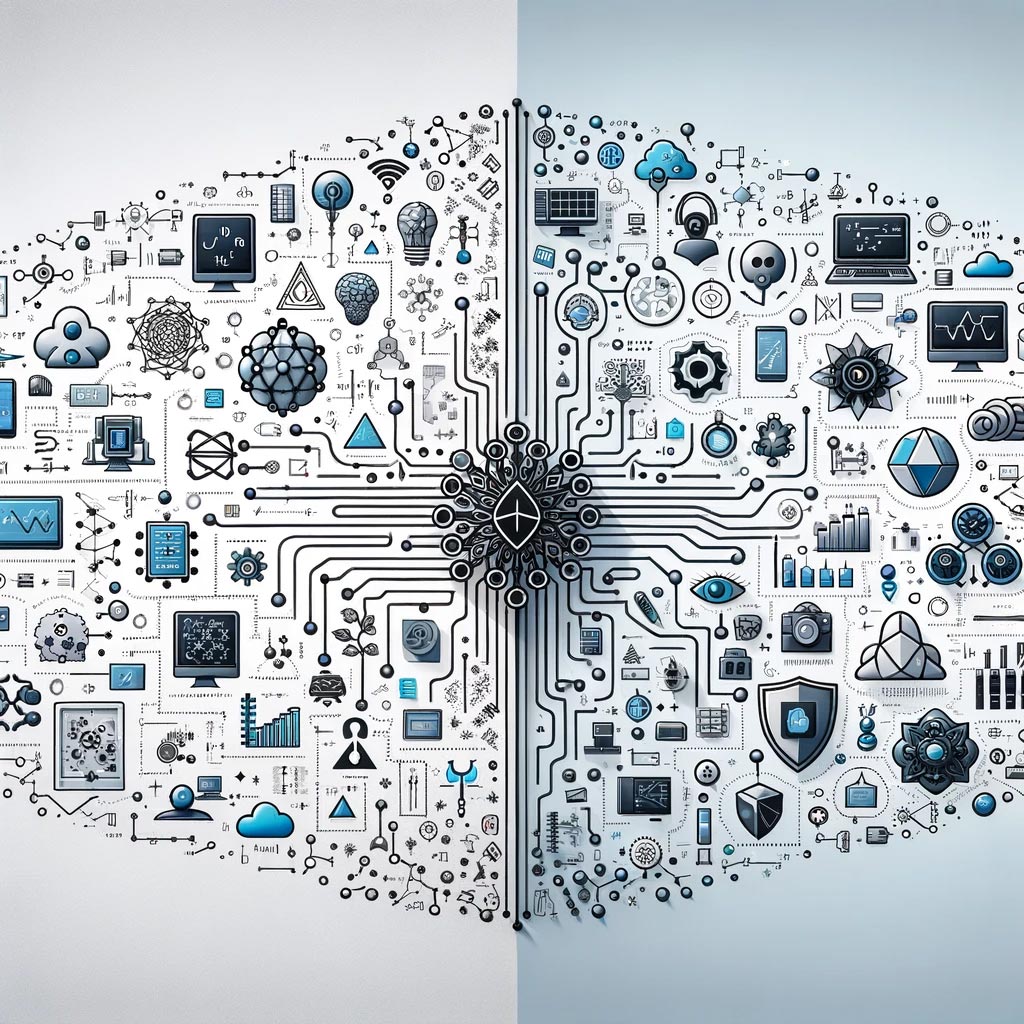
Differences Between Computer Science & Tech Explained
In the rapidly evolving digital age, the distinction between computer science and computer technology has become increasingly important for students, professionals, and educators alike. This comprehensive guide aims to demystify the nuances between these two pivotal fields, providing clear definitions, educational pathways, career opportunities, and insight into their respective technological applications and future trends.
Introduction
The digital revolution has ushered in a new era of innovation and advancement, with computer science and computer technology at its core. Despite their intertwined nature, these disciplines serve distinct purposes and offer different career paths and educational requirements. Understanding these differences is crucial for anyone looking to make informed decisions about their future in the tech industry.
Defining the Fields
Computer Science
Computer science is the study of algorithmic processes, computational machines, and computation itself. As a discipline, it involves the theoretical foundations of information and computation, along with practical techniques for the implementation and application of these foundations.
Computer Technology
Computer technology encompasses the hardware and software necessary for the design and utilization of computers. It focuses on the application of computer science principles to solve practical problems through the development of hardware and software.
Educational Pathways
The educational requirements for these fields reflect their focus and scope.
Computer Science Education
A typical computer science degree program includes the study of:
- Programming Languages: Understanding the syntax, semantics, and paradigms of various programming languages.
- Software Engineering: Learning the principles of designing, developing, testing, and maintaining software.
- Algorithms and Data Structures: Studying the fundamental algorithms, their efficiency, and data organization techniques.
- Theoretical Computer Science: Exploring the mathematical aspects of computing, including computability and complexity theory.
Computer Technology Education
Education in computer technology focuses on:
- Hardware Design: Learning about the design, development, and testing of computer hardware.
- Network Architecture: Understanding the design and management of computer networks and protocols.
- Systems Analysis: Analyzing and designing information systems to meet organizational needs.
- Cybersecurity: Learning to protect systems, networks, and programs from digital attacks.
Career Paths
Both fields offer diverse career opportunities but cater to different interests and skill sets.
Careers in Computer Science
Professionals in computer science often engage in:
- Software Development: Designing, coding, and testing software applications.
- Data Analysis: Using algorithms to interpret complex data sets.
- Machine Learning: Developing algorithms that allow computers to learn from and make predictions on data.
- Research and Development: Conducting research to advance the field of computing.
Careers in Computer Technology
Careers in computer technology are geared towards:
- Hardware Engineering: Designing and testing new hardware systems.
- IT Solutions: Managing and implementing computer systems and networks within organizations.
- Technical Support: Providing support and solutions for software and hardware issues.
- Systems Administration: Overseeing the configuration, management, and maintenance of computer systems and networks.
Technological Applications
Innovations in Computer Science
Computer science drives innovation in many sectors, including:
- Artificial Intelligence (AI) and Machine Learning: Enhancing capabilities in data analysis, automation, and predictive modeling.
- Software Development: Creating applications that solve real-world problems across various industries.
- Cryptography: Ensuring secure communication and protecting information against unauthorized access.
Innovations in Computer Technology
Computer technology plays a critical role in:
- The Internet of Things (IoT): Connecting everyday devices to the Internet for improved data sharing and communication.
- Cloud Computing: Providing on-demand availability of computer system resources, especially data storage and computing power.
- Cybersecurity Measures: Developing advanced technologies to protect against cyber threats.
Future Trends
Trends in Computer Science
Emerging trends in computer science include:
- Quantum Computing: Leveraging the principles of quantum theory to process information at unprecedented speeds.
- Blockchain Technology: Providing secure, decentralized platforms for transactions and data sharing.
Trends in Computer Technology
In computer technology, significant trends are:
- 5G Technology: Offering faster and more reliable internet connectivity.
- Augmented Reality (AR) and Virtual Reality (VR): Enhancing real-world environments with digital experiences.
Conclusion
The distinction between computer science and computer technology is fundamental to understanding the broader tech landscape. While computer science focuses on the theoretical underpinnings of computing, computer technology applies these principles to solve practical problems through the development of hardware and software. Both fields are essential to the advancement of technology and offer diverse and rewarding career paths.
By choosing a path that aligns with their interests and skills, individuals can contribute to the future of technology, whether through groundbreaking research and development in computer science or by implementing innovative solutions in computer technology. As technology continues to evolve, the importance of these disciplines will only grow, highlighting the need for skilled professionals ready to meet the challenges of tomorrow's tech landscape.
Computer Technology Computer Science




